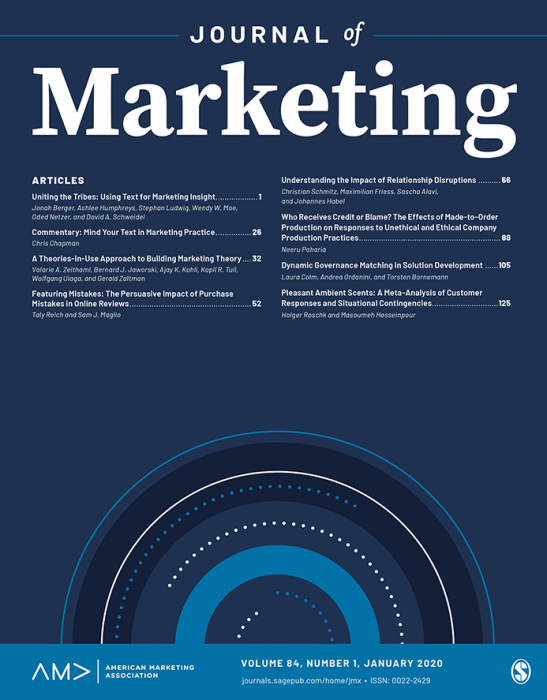EXPRESS:象征简单:简单的包装设计如何影响消费产品的支付意愿
IF 11.5
1区 管理学
Q1 BUSINESS
引用次数: 0
摘要
虽然消费者通常看重极简主义美学,但很少有人研究为什么以及何时消耗品的简单包装设计会提高消费者的消费效果。我们的理论是,简单的包装唤起了一种象征性的联想,最小化设计复杂性表明产品含有很少的成分,这增加了产品的纯度和支付意愿(WTP)。对一家连锁超市产品包装的实地研究(N = 1353)为WTP的增加和两个边界条件提供了初步支持。六个预先注册的研究重复了这些效应,并测试了潜在的过程。研究1a-b发现,简单包装WTP的增加是由成分较少的推断推动的,从而提高了感知产品的纯度。研究2使用激励相容设计证明了WTP的增加。研究3通过有调节的中介强化了所提出的过程。最后,研究4-5在实地研究中测试了边界条件,发现当产品来自商店(与非商店)品牌时,当消费者有放纵(与健康)目标时,简单包装的WTP会减少。这些发现为极简主义美学提供了理论和管理见解。本文章由计算机程序翻译,如有差异,请以英文原文为准。
EXPRESS: Symbolically Simple: How Simple Packaging Design Influences Willingness to Pay for Consumable Products
Although consumers often value minimalist aesthetics, little work has examined why and when simple packaging designs of consumable products enhance consumer outcomes. We theorize that simple packaging evokes a symbolic association where minimizing design complexity signals that the product contains few ingredients, which increases perceived product purity and willingness to pay (WTP). A field study examining a supermarket chain’s product packages ( N = 1353) provided preliminary support for this increase in WTP and two boundary conditions. Six preregistered studies replicated these effects and tested the underlying process. Studies 1a-b found that the increase in WTP for simple packaging is driven by few-ingredients inferences increasing perceived product purity. Study 2 demonstrated the increase in WTP using an incentive-compatible design. Study 3 reinforced the proposed process via moderated mediation. Lastly, studies 4-5 tested the boundary conditions in the field study, finding that WTP for simple packaging decreases when the product is from a store (vs. non-store) brand and when consumers have an indulgence (vs. health) goal. These findings offer theoretical and managerial insight into minimalist aesthetics.
求助全文
通过发布文献求助,成功后即可免费获取论文全文。
去求助
来源期刊

Journal of Marketing
BUSINESS-
CiteScore
24.10
自引率
5.40%
发文量
49
期刊介绍:
Founded in 1936,the Journal of Marketing (JM) serves as a premier outlet for substantive research in marketing. JM is dedicated to developing and disseminating knowledge about real-world marketing questions, catering to scholars, educators, managers, policy makers, consumers, and other global societal stakeholders. Over the years,JM has played a crucial role in shaping the content and boundaries of the marketing discipline.
 求助内容:
求助内容: 应助结果提醒方式:
应助结果提醒方式:


